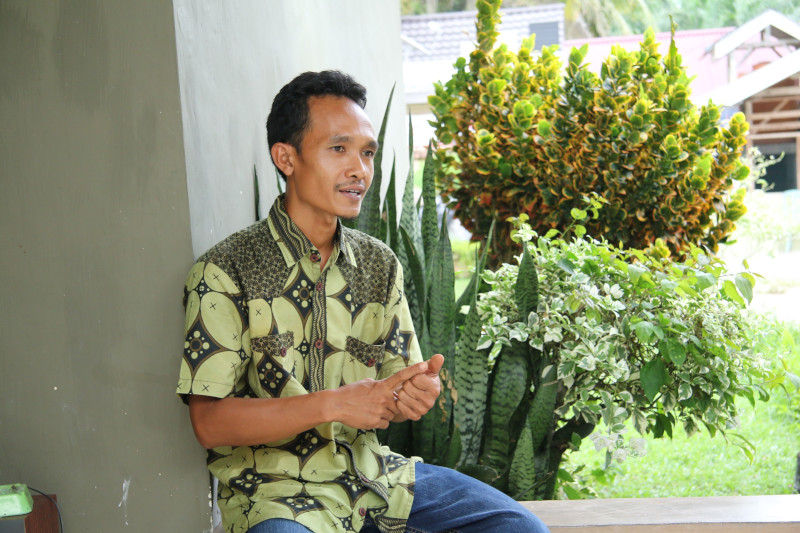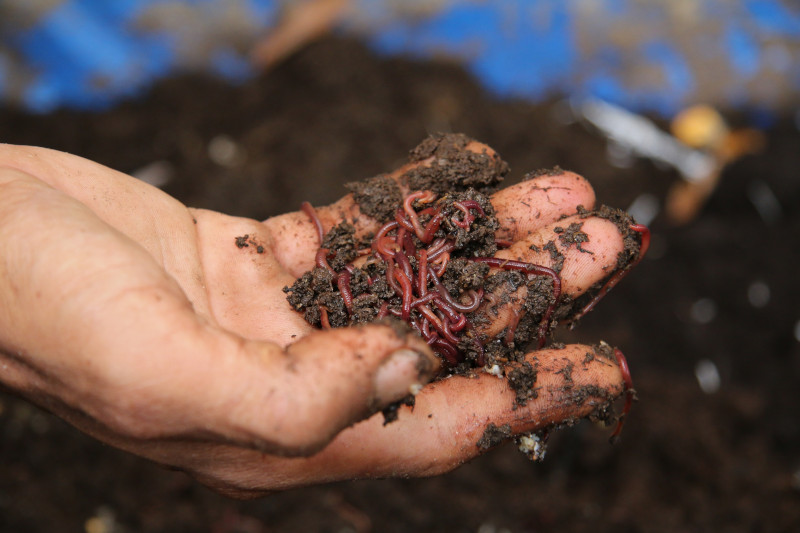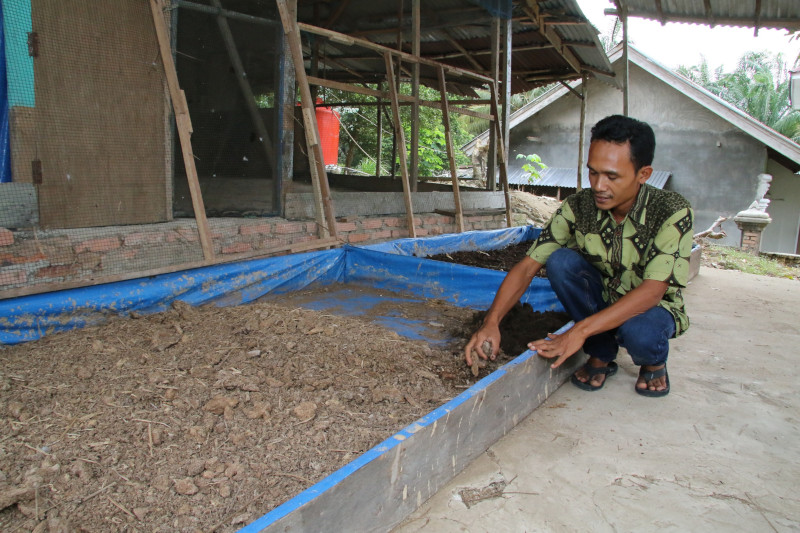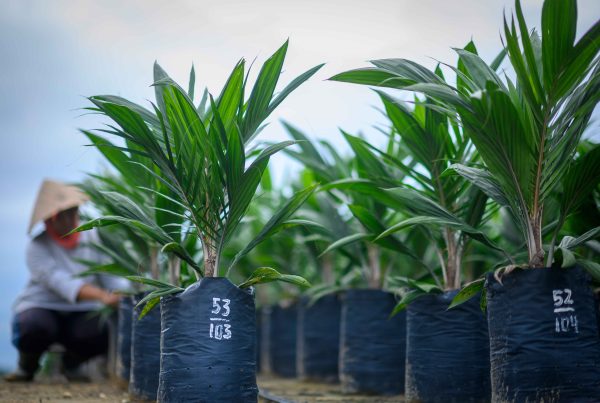For some people, worms are disgusting creatures, but not for Kristiono. As a second generation Asian Agri smallholder farmer, he sees the economic potential of the small animals.
“As a child of an oil palm farmer and living surrounded by oil palm plantations, I thought that I wanted to start a business that comes from oil palms,” he said.
With support from Asian Agri, which helps oil palm smallholders set up other businesses to diversify their income, he started farming African Night Crawler worms. The worms are ideally suited to a plantation area because instead of soil, they thrive in leftover organic material from oil palms.

According to Kristiono, whose family was originally from Salatiga, Central Java, the worms help the dead palm tree matter to decompose, meaning it can later be used as organic fertilizer for oil palm plants. The worms themselves are sold as animal feed, making it an extremely efficient business.
Kristiono’s father, Sunarto, is an Asian Agri smallholder partner who participated in the Government Transmigration Program (PIR – Trans) program in 1991.
“Since my father became an oil palm smallholder, Asian Agri has been with us from the start. As the successor of my father now I receive direct guidance so that we know what prospective business can be developed,” Kristiono said.

Asian Agri helps farmers like Kristiono set up additional sources of income to help them through the replanting period. Oil palms become less productive as they age and must be replanted after 20-25 years, but many farmers delay the process, fearing the loss of income in the first 28-30 months of the new trees’ life until they begin to bear fruit.
Kristiono, who has lived in Pelalawan, Riau since 2005, has been farming worms for more than two-and-a-half years.
“The worm business is based on the advice and guidance from Asian Agri. Because this business is still relatively new, as soon as I heard that there was a prospect, I didn’t hesitate to take part in the coaching clinics and learn more about it,” he added.
“If I had to compare with other businesses I tried, such as catfish cultivation, worm cultivation is the simplest and most economic,” explained Kristiono.

A batch of worms takes about 10-12 weeks to reach maturity, and can be sold for IDR100,000 (approximately US$7) per kilo.
Impressed by his success, other members of the community have been learning from Kristiono about the business, and he now partners with other second generation oil palm farmers to work together.
“For this area, I have formed a group, so that we can do the harvest together,” he said.



